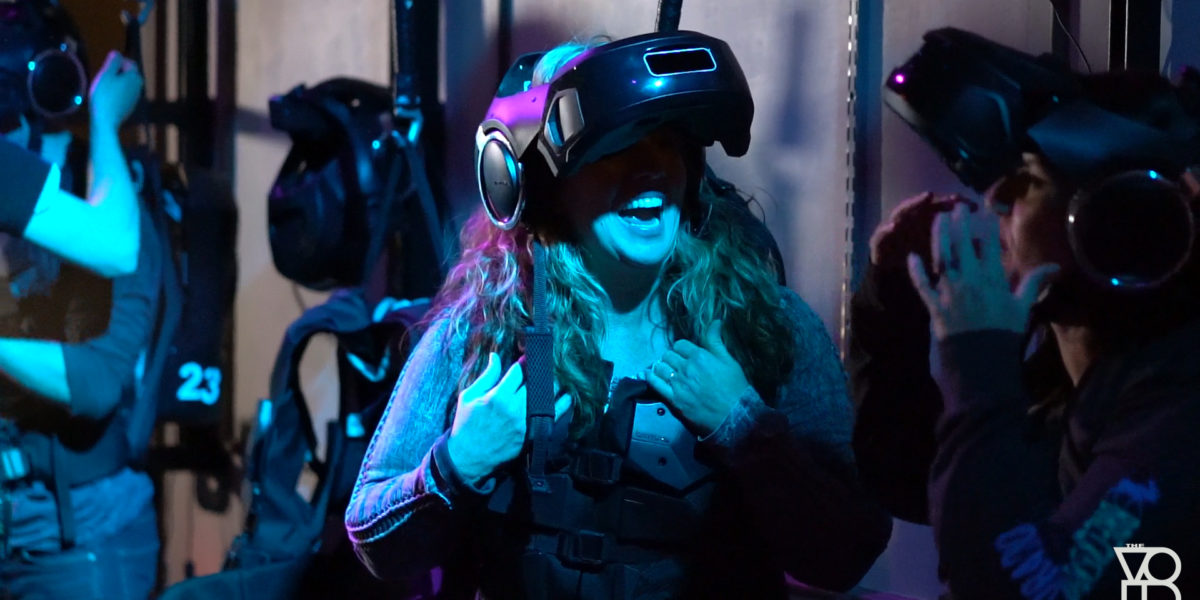When we talk about VR, we most often do so in the context of the gaming industry. The majority of articles you read on the topic will be from the games industry press, or filed clearly under the gaming tab of tech news & opinion websites. Not to mention that a fair amount of VR innovation is coming from gaming businesses.
Let’s face it, it’s a pretty logical association. At least in the B2C world, VR technology is primarily used for gaming, so it makes sense to think of virtual reality as the grown-up sibling to traditional games consoles.
But many of the criticisms of B2C VR are intertwined with this in-home gaming context. In our previous blogs on VR we have already talked about the isolating nature of the headsets resulting in a loss of the social side of game play, which is a key driver for many consumers. Additionally, there is the somewhat claustrophobic nature of playing in home, and having the VR experience limited by physical surroundings.
With these challenges in mind, it sometimes feels like the future of VR is unclear. Perhaps, then, by changing our perspective and reframing the market VR sits in, we can see the landscape a little more clearly.
Earlier this month a new ‘location-based’ VR player called Dreamscape Immersive stepped on to the scene. The brand’s technology uses hand and feet trackers to bring the users’ whole body in to the experience, whilst props are used to increase interaction with other players.
Even before this, we have seen examples of VR successes where the experience has been broadened from individual and in-home to communal and location based, from Greenpeace’s installation at Glastonbury Festival last year, to the Star Wars VR experience currently running in Westfield shopping centre in Shepherd’s Bush, London.
So, rather than the video games market, is VR actually in the broader entertainment and leisure space? If we view the category this way, it begins to compete with activities and venues such as cinemas, theme parks, – and, who knows, maybe even bingo halls – instead of just gaming. And with an ever growing ‘experience economy’ of activities ranging from axe throwing to roof-top curling taking over our urban spaces, the opportunities in this market could be huge.


